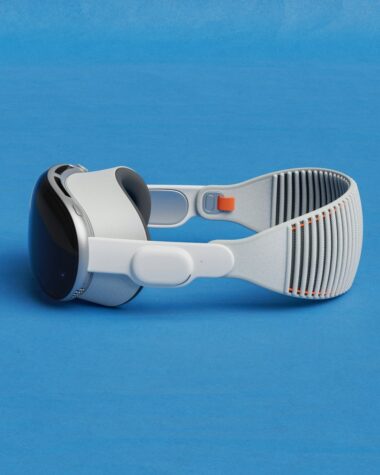Artificial intelligence is no longer confined to research labs or science fiction; it has seamlessly integrated into everyday life. From managing schedules and streamlining communication to optimizing home environments and personal habits, AI tools are transforming how we approach daily routines. The most impressive aspect of this revolution is how AI simplifies complex tasks, allowing people to focus on priorities, creativity, and personal growth.
These tools are not about replacing human effort—they’re about enhancing efficiency, reducing repetitive tasks, and providing intelligent insights that make life smoother. This article explores the AI innovations that are genuinely changing daily routines and improving productivity, comfort, and well-being.
1. AI-Powered Personal Assistants
Streamlining Everyday Tasks
AI personal assistants, available on smartphones and smart speakers, can manage schedules, send reminders, draft messages, and even answer questions on demand. These assistants help organize day-to-day tasks, eliminating the mental load of remembering appointments, deadlines, or errands.
For families, AI assistants can coordinate shared calendars, remind children of homework, or notify household members of tasks like grocery shopping. The result is a more organized household and a reduction in the stress associated with managing multiple responsibilities simultaneously.
Learning Preferences Over Time
Modern AI assistants adapt to user habits. They learn preferred routines, suggest optimal times for tasks, and anticipate needs. For example, a digital assistant may automatically create a morning briefing with weather updates, traffic reports, and reminders, aligning seamlessly with the user’s lifestyle and saving valuable time.
2. Smart Home AI
Optimizing Energy and Comfort
AI-driven smart home systems manage lighting, heating, and appliances based on patterns and preferences. Smart thermostats learn when to adjust temperatures, while AI-enabled lighting systems create optimal ambiance without manual intervention. This reduces energy waste, lowers bills, and provides consistent comfort.
Automation of Daily Chores
Robotic vacuum cleaners, lawn mowers, and AI-assisted kitchen appliances can perform household chores autonomously. Tasks that once consumed significant time—cleaning, cooking, and maintenance—are now streamlined, freeing time for work, family, or personal development.
3. AI in Personal Productivity
Intelligent Scheduling
AI calendar tools can automatically schedule meetings, prioritize tasks, and suggest the most productive times for focused work. By analyzing patterns of availability and workload, these tools minimize scheduling conflicts and enhance time management efficiency.
Task Automation and Reminders
AI can detect recurring activities and suggest automation, such as recurring email responses, reminders for periodic bills, or task prioritization. This reduces cognitive load and ensures that important tasks are never overlooked, allowing for a smoother daily workflow.
4. AI in Health and Wellness
Personalized Fitness Guidance
AI-powered fitness apps track physical activity, recommend exercises, and adapt routines based on progress. These tools consider user goals, energy levels, and preferences, ensuring workouts are effective without becoming overwhelming or repetitive.
Mental Well-being Support
AI applications can assist with stress management and mindfulness. Through guided exercises, mood tracking, and personalized recommendations, these tools provide accessible mental health support. Notifications for breaks, hydration, or relaxation exercises help integrate wellness seamlessly into busy routines.
5. AI in Communication and Information Management
Smart Email and Messaging Tools
AI-driven email and messaging assistants filter messages, prioritize important communications, and even suggest responses. This reduces the time spent sifting through cluttered inboxes and ensures timely, efficient communication without causing stress.
Content Organization and Summarization
AI can summarize lengthy documents, extract key points, and organize notes, saving significant time for work, study, or research. This allows users to access relevant information quickly and focus on decision-making or creative tasks rather than manual processing.
6. AI in Financial Management
Tracking Expenses and Budgeting
AI-powered finance apps monitor spending, categorize transactions, and provide insights for smarter budgeting. They can forecast future expenses and suggest strategies to save or allocate funds more effectively, creating a seamless integration of financial planning into daily life.
Fraud Detection and Security Alerts
AI algorithms detect unusual activity in bank accounts or digital wallets, sending instant alerts for potential fraud. This not only protects financial assets but also provides peace of mind, reducing the anxiety associated with financial management.
7. Personalized Recommendations for Lifestyle
Shopping and Meal Planning
AI tools suggest shopping lists, recipes, and products based on dietary preferences, past purchases, or household needs. This reduces decision fatigue, prevents unnecessary purchases, and ensures meals and supplies are planned efficiently.
Entertainment and Learning
AI-powered recommendation engines suggest movies, music, books, or educational content tailored to individual tastes. This personalization saves time spent browsing while enhancing the quality of leisure and learning experiences.
Conclusion
AI tools are no longer optional extras—they are becoming essential companions in modern life. From personal assistants and smart home systems to productivity apps, health trackers, and financial management tools, AI is reshaping how we organize, manage, and experience daily routines.
The key to benefiting from AI is choosing technologies that genuinely support your lifestyle and integrating them thoughtfully. When applied effectively, AI reduces mental load, automates repetitive tasks, enhances decision-making, and fosters a balanced life. These innovations not only make daily routines easier but also create more time and energy for meaningful pursuits, personal growth, and well-being.








